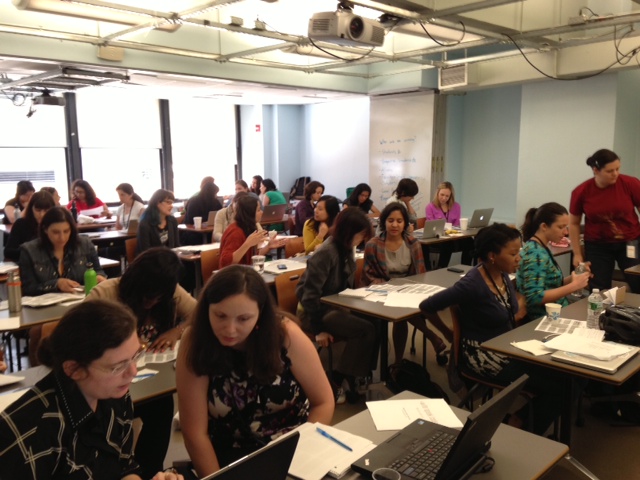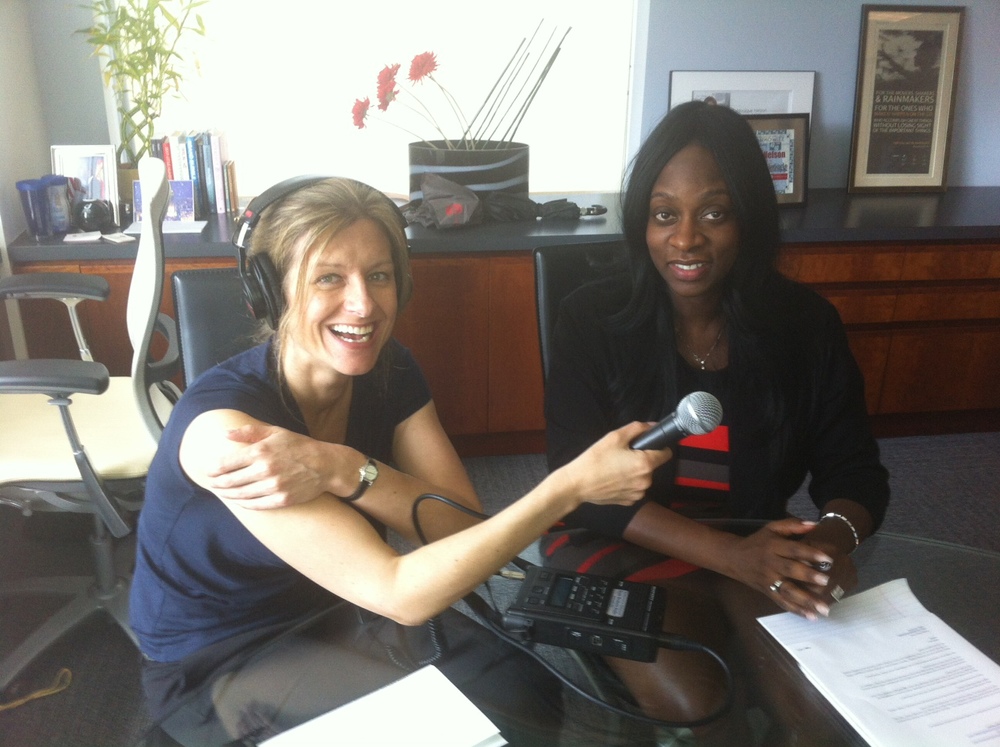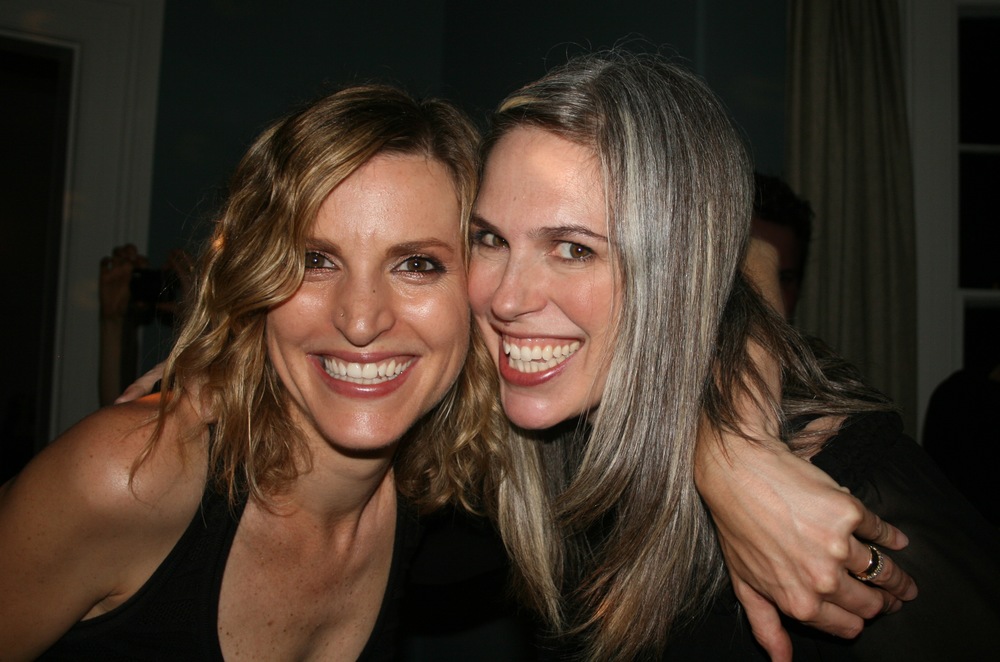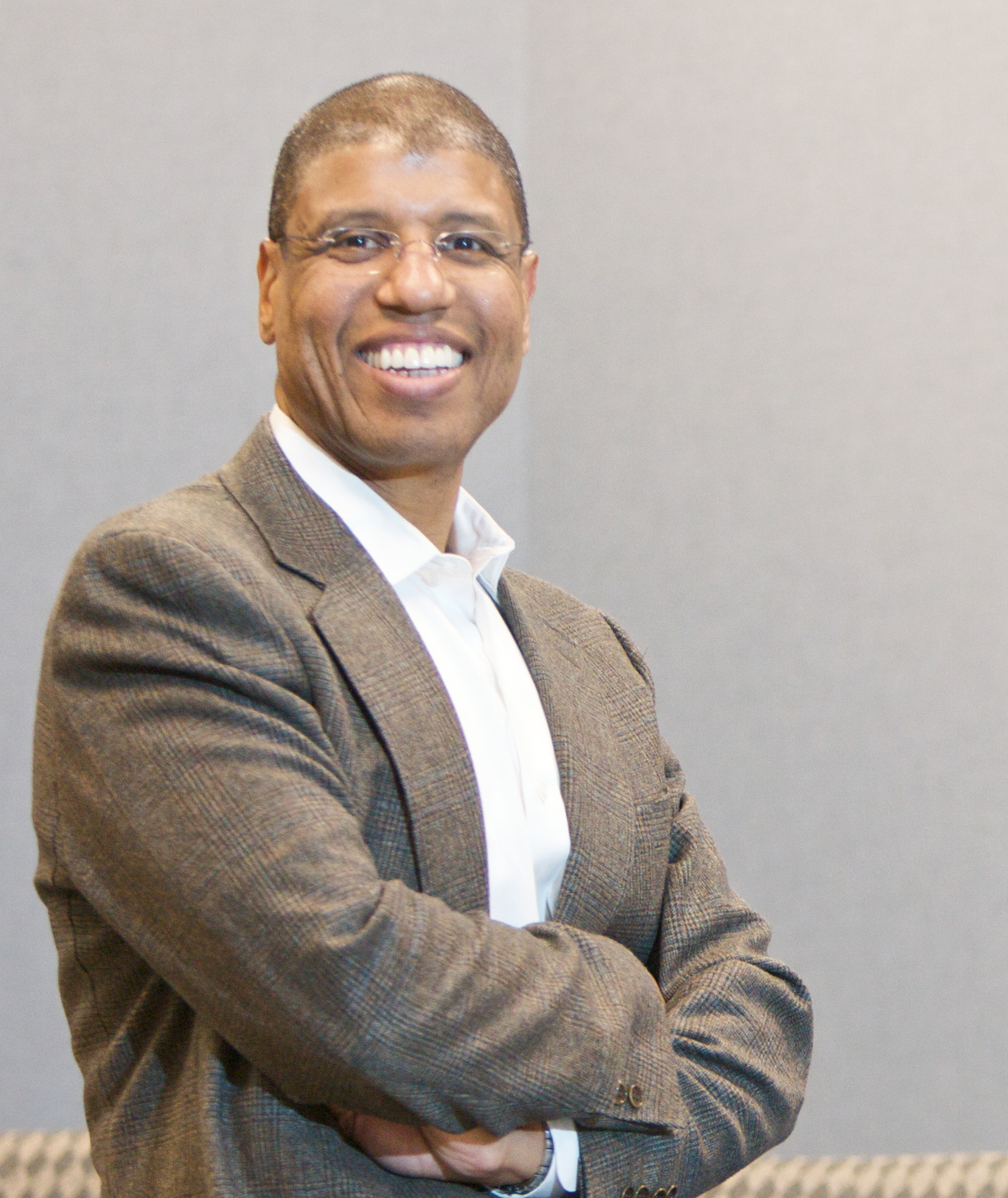Episode 25: Killing the ideal woman
/September 9, 2013
"What we see in the media is this idea that career and ambition aren’t something women should want." - Jodi Detjen, co-author, The Orange Line: A Woman's Guide to Integrating Career, Family, and Life
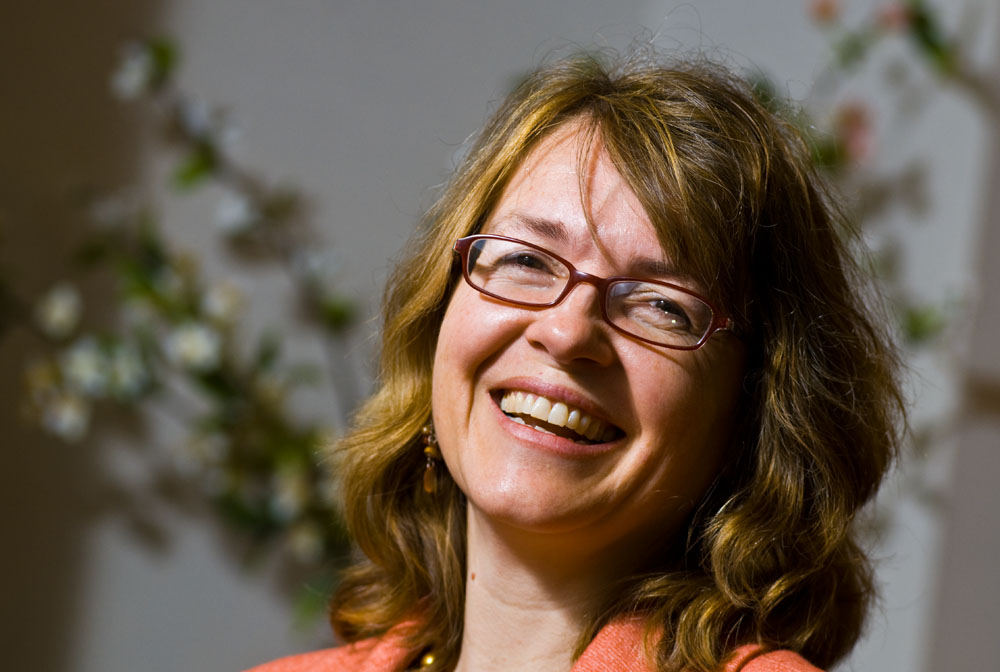 Jodi Detjen
Jodi Detjen
On the first show of the fall season, we look at the extent to which women are still trying to live up to the stereotype of the ideal woman - and how that may be hurting our careers. You know her: she's does everything (at home and at work), she looks fabulous, and, of course, she's nice. My interviewee, management professor and author Jodi Detjen, says women's efforts to tick all the right female boxes are consuming most of our waking thoughts, to the detriment of our careers. She and her two co-authors discuss this - and how to stop succumbing to the usual pressures so we can achieve more in life and at work - in their book The Orange Line: A Woman's Guide to Integrating Career, Family and Life. You can read a bit more background on the book in my post, 'Ditching The Feminine Filter.'
"My hope is that women become free of all these rules of what it is to be a woman…that they can be what they are, and they can establish their life’s work," says Detjen. "Right now women’s voices can’t be heard, because we’re self-limiting. If we’re free to speak our mind and be who we are then the world has to change."
I'm inclined to agree. 15 minutes.
TRANSCRIPT:
Welcome to The Broad Experience, the show about women, the workplace, and success. I’m Ashley Milne-Tyte.
This week on the show - perhaps one reason so few women are in positions of power is that we’re too busy trying to live up to a stereotype…
“What we realized was that women were making career limiting decisions consistently, based on this ideal woman. And the ideal woman does it all, she looks really good, and she is very nice.”
Coming up on The Broad Experience.
[Sponsor announcement here]
Jodi Detjen thought her career as a consultant was still going pretty well after her first child was born. But then she had her second son. He had colic, and she was exhausted, overwhelmed and depressed. Then her husband started traveling a lot for his job. Suddenly she was doing everything house and child-related and working less. Still, she told herself being the perfect mother was more important. But she spent five years feeling miserable as home responsibilities took over, competitive parenting practices set in, and her career dwindled.
“I had kept putting it away sacrificing my career for my children, using that mantra, and it was painful, and it hurt me a lot. And it wasn’t until I really got out of there and realized what it was I was doing to myself, that I started to find the freedom and stared to work out what my career looked like and started to make it what it was today.”
What she realized she says is that for her career was vital – she couldn’t be happy without it. She’s now a professor of management at Suffolk University near Boston. She’s also the co-author of a book called The Orange Line – A Woman’s Guide to Integrating Career, Family and Life.
She and her co-authors Michelle Waters and Kelly Watson interviewed 118 women in the US and Canada while they were researching the book. All were professional and college-educated; most were married, and nearly all were white. As they talked to more and more women, the authors began to notice a pattern.
“When we were analyzing our data we kept hearing things that would come up like…oh, I can’t really ask for a raise or promotion because I’m not quite ready yet. Or, I have to get up at 2a.m even though I work a fulltime job to take care of the baby because my husband has a physical job. Or, I have to have the government job because my husband has his own business…or I have to own my own business because my husband has a big job. In essence what we kept hearing was all these reasons why these women had to sacrifice their career for somebody else.”
Jodi and her co-authors says self-sacrifice is part of what they call ‘the feminine filter’ – a set of beliefs women tend to have about themselves and what they should be and do.
“And The Feminine Filter, what we realized was women were making career-limiting decisions consistently based on this ideal woman. And the ideal woman does it all, she looks really good, and she is really nice. And so if you have to do all those things then clearly you don’t have time to do a lot of other stuff. If you have to take care of the kids, you have to take care of your employees, of your house, of the dog, you can’t have time to do a lot of other things like take care of yourself. We heard this again and again, and what our conclusion really was is this is why women aren’t in positions of power – because they’re trying to be the ideal woman and they’re not thinking about what it is that they really want.”
Now of course a lot of women want to stay at home with their children full-time and do – at least for a while. Not everyone puts great emphasis on their career or enjoys it. But of the women Jodi and her fellow authors interviewed, 75 percent described themselves not just as liking their career, but loving it. Yet many felt compromised.
I asked Jody to take me through the six assumptions that underlie the so-called Feminine Filter, which she says is responsible for a lot of female frustration, even if women don’t always realize it.
Number one:
“Women are primarily responsible for home and family and taking care of everyone. So when we believe that this is true, then we’re the ones that do the doctors’ appointments, that take care of making sure the kids have school clothes, that anything that goes wrong in the house we call the handyman, we do everything at home because we’re the ones responsible, the buck starts with us.”
The second assumption women make, according to Jodi, is that our commitment to something is measured by how much time we devote to it – be it children or work. In other words we really need to put in those hours.
“So this comes out in, I have to keep my head down and work, work, work, I can’t go out to lunch with the other people because there’s work to be done.”
Next?
“The third one is we have to be perfect in behavior and appearance at all times. So this basically means that we can’t make mistakes, we can’t take risks, we can’t take a promotion – one woman wanted to take a promotion but she was like, oh, I’m not quite ready, I don’t have all the skills yet, meanwhile the men are jumping ahead and saying, ‘I’m ready!’”
“The fourth one is we are never good enough. So because we are constantly trying to be perfect, everything we do is sub-par.”
The fifth assumption she says many women have internalized is that tangible, material rewards aren’t supposed to matter – money and things, in other words. She says this is why so many women feel uncomfortable and even guilty asking for a raise.
“And then the last one is, if we follow the rules, good things will happen. So if we keep our head down and we do everything our boss is asking, then of course we’ll get the promotion, of course we’ll be asked, of course we’ll get the raise. So what happens is we believe that these assumptions are true and then we act according to them and then we’re shocked when life doesn’t work out the way we want.”
That last one about following the rules really resonates with me. It took me years to realize that toeing the line wouldn’t get me where I wanted to be at work. I think a lot of women slave away at the office because hard work always got them results at school. But the workplace is a different beast. And all that unquestioning labor can easily lead to burnout.
AM-T:
“You have this great chapter in the book called Approaching Burnout…which I think a lot of listeners will relate to probably regardless of their sex. But um, maybe we can talk about some of those examples because you’ve enumerated in the book – you have these little tables where you set up a scenario and you then talk about the underlying assumptions beneath it and then you sort of discuss a solution, basically.
And, so let me read one of these: ‘I will manage, it’s only temporary, I just need to get through this short time. I can rest when I get through this crunch.’
Just talk about that example and what’s really going on there, if you would.”
“Well what’s going on there is because we assume we need to be perfect, we need to have everything look good, we can’t say no to anything, we can’t give it to anyone else to do, we cant make a mistake because then people will see oh my God, we really aren’t perfect and then our whole façade is gone…I’ll give you an example of where this happened, one of the women I was working with, she was a manager…she was working till 8 o’clock and she was getting burned out. Because everything needed to be perfect, and she couldn’t possibly delegate to her staff because they weren’t capable…
…but we examined this and realized oh, that’s not true, how do you develop people on your team? You do it by giving them work, coaching them, giving them feedback…also setting boundaries…
…her team started becoming more capable and she started leaving at 6 o’clock.”
[Squarespace sponsor announcement here]
Jodi and her co-authors’ opinions don’t sit well with everyone. For one thing, the authors say just because many women’s jobs pay less then their spouses’, women should not automatically view their own job as less important.
AM-T: “And you in the book are really - you want to really encourage women not to look at their job as less important because it pays less, but you’ve had some pushback on this. Their response seems to be look, if his job pays 3 times more than mine of course it’s, his is more important. And if he lost his job it would be a catastrophe for our family and if I lost my job, it wouldn’t be. Talk about that for a minute because women seem very resistant to taking on your point of view on this.”
“I think what we’ve internalized is that we are less important and we’ve definitely internalized that our careers are less important….and so what we’re doing is conflating value with money and we’re saying clearly his job is more important because he makes more money. But this isn’t always true, because we’ve had many women that change. So for example, there was a woman whose husband got laid off and he was making more money. Well if they didn’t have her career they’d be really stuck. But her job – she was able to manage that family for a year till the husband got his career. Her career ambition enabled the family able to grow and learn. The other thing that happens is because we make this assumption, oh, he’s making more money than me, women naturally close down their career as things come up, so they make their careers even smaller.”
“But here’s the real problem. What ends up happening then is we perpetuate the myth that those who make it to the top are only those whose spouses are stay at home, or spouses whose careers are not important. And so anyone who wants to have an Orange Line life…where you have a career, family and life, they can’t make it to the top of organizations, because clearly they aren’t willing to sacrifice everything for that job. So we’re stuck, we’re stuck in this model that nobody likes, but we’re the ones perpetuating it because we’re the ones enabling our husbands and we’re dong it by saying that our dreams don’t matter as much as his.”
Which perhaps isn’t that surprising after centuries of being the second sex. It takes a while for most people to get over that much social conditioning – providing they even want to. For some, it’s just the way things are.
“We we are told as women that we are supposed to be like this. And just…it’s the whole follow the rules thing, right? To be a good woman, you’ve got to take care of your house. So if we say no you don’t, women are like, well yes I do, my house is a reflection on me, it’s a reflection on my family! Well, why do you have to do it? Or we spoke with a woman a couple of weeks ago who, they both work, the husband is a school teacher, she says the husband is not good enough with helping the children with their homework, so I have to do it. When we pushed back, we realized the husband is a schoolteacher, she was like, uh, well… she didn’t know what to say. Because it’s hard, it’s really hard, to see this.”
And of course many women enjoy those kinds of activities. But if you’re frustrated by attempting to balance home life and career, Jodi says just think for a while about all the assumptions you make about your life and role on a daily basis…and question them.
After several unhappy years after her second child was born, Jodi and her husband agreed no one’s career is more important.
“Both our careers are considered equal. OK, so then alright, what does that mean? It means if I have to travel, we negotiate, if he has to travel, we negotiate, it means a lot of conversations about logistics. But it also means we both get to have careers we love and want and that our kids get to watch us enjoy our work, and this role modeling is powerful for me.”
And that idea of children actually seeing their mothers work at something they enjoy is something I’ll come back to in a show later this fall.
Thanks to Jodi Detjen, co-author of The Orange Line, for talking to me for this show. If you have comments on this episode you can post them at The Broad Experience dot com or on the show’s Facebook page. Jodi and I will weigh in as well.
The Broad Experience is supported by the Mule Radio Syndicate…whose stable of podcasts is getting bigger.
I’m Ashley Milne-Tyte. Thanks for listening.
